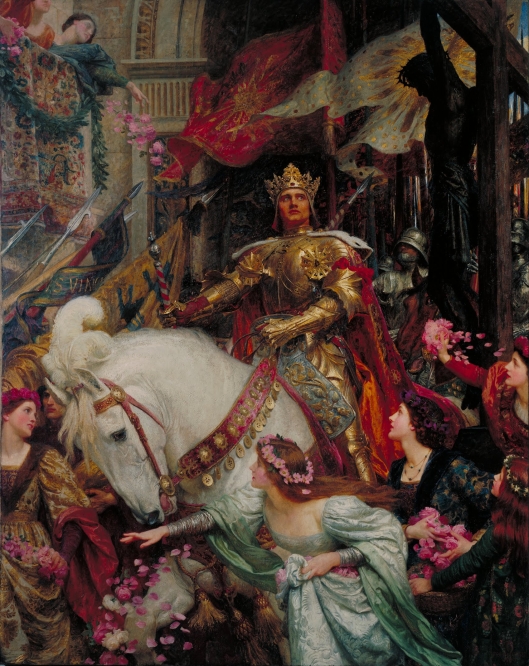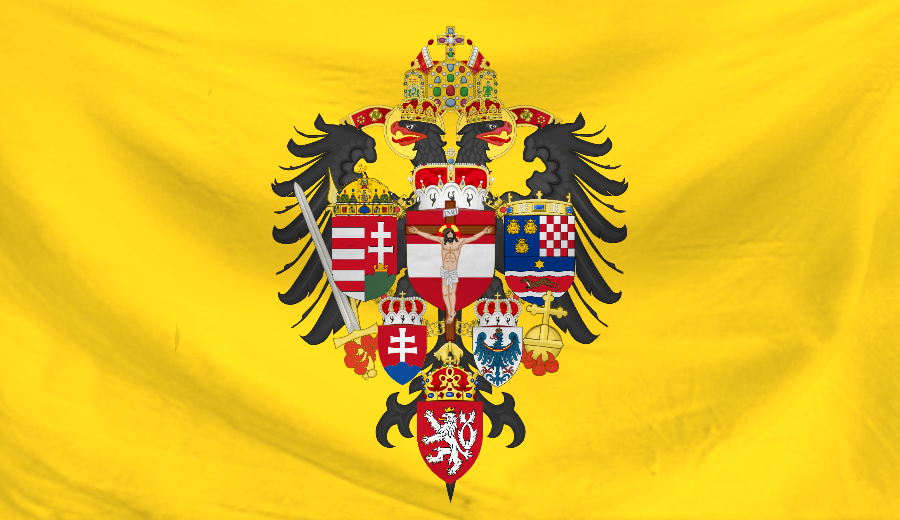 Apparently the idea is floating around the Reactionary Right that Natural rights don’t exist. This is a compelling idea, considering how the Left is now using the concept of “human rights” to justify immoral license, as is all too obvious in these immoral days. The answer seems to be to reject any kind of inherent rights as incompatible with order in the society, and for those who would do so I have a question: Which is more important, Justice for the person or order for the society?
Apparently the idea is floating around the Reactionary Right that Natural rights don’t exist. This is a compelling idea, considering how the Left is now using the concept of “human rights” to justify immoral license, as is all too obvious in these immoral days. The answer seems to be to reject any kind of inherent rights as incompatible with order in the society, and for those who would do so I have a question: Which is more important, Justice for the person or order for the society?
The only sound foundation of societal order is and must be the Natural Law, which is also the source of true Freedom. Such an order is inherently just, and yet is not by any means a perfect order in this fallen world. In his encyclical Libertas, Pope Leo XIII explains that,
the force of law consists in the imposing of obligations and the granting of rights
If this is true, then the force of the Natural Law consists not only of Moral commands, but of Moral rights respecting human persons. Such rights, what St. Thomas Aquinas defines as Natural Right, have their origin in Human Nature, and ultimately in the God the Creator, who is the source of the authority of the Natural Law. Pope Pius XI in his encyclical Divini Redemptoris explains that,
In consequence he has been endowed by God with many and varied prerogatives: the right to life, to bodily integrity, to the necessary means of existence; the right to tend toward his ultimate goal in the path marked out for him by God; the right of association and the right to possess and use property.
Now this is not contrary to societal order, but an integral part of a truly Just and Free order. Nor are the natural rights listed above contrary to Man’s obligations, for Pope Pius later continues by saying,
Man cannot be exempted from his divinely-imposed obligations toward civil society, and the representatives of authority have the right to coerce him when he refuses without reason to do his duty. Society, on the other hand, cannot defraud man of his God-granted rights, the most important of which We have indicated above. Nor can society systematically void these rights by making their use impossible. It is therefore according to the dictates of reason that ultimately all material things should be ordained to man as a person, that through his mediation they may find their way to the Creator.
The argument that basic rights with respect to the Human person have their origin in civil society is not only flatly contrary to the Natural Law, it undermines other moral arguments. A favorite argument of the Reactionary Right these days is that the woman who procures an abortion ought to receive legal consequences if abortion is made illegal, and I am not arguing that they are wrong. But what is their own moral argument against abortion if the innocent do not have an intrinsic right to life, but rather all rights are determined by the State?
Yet in the end the question remains, “which is more important, Justice for the person and imperfect order or a seemingly perfect order for the society which denies justice?” Do we first and foremost equitably give each person his due or do we seek to impose a perfect order over society putting each person where we feel is his place? Is the ruler really ordering society to the Good if he does so at the expense of the individuals or is the ruler simply a tyrant? Has the King really returned if he denies the God-given inherent rights of his subjects or are we swearing allegiance to a false crown?
“Discipline for the whole society is surely more important than justice to an individual…”
“Discipline for society——” he repeated, very staccato, “more important—justice to individual?”
Then after a long silence he called out: “Who and what are you?”
“I am an angel,” said the white-robed figure, without turning round.
“You are not a Catholic…”
–The Ball and the Cross, G.K. Chesterton

I noticed the debate as well. Yet in my view it is about something entirely different. You are probably correct in your reasoning but I don’t understand how it is connected to their topic.
I don’t intend to be their internet bodyguard, I am just wondering. Apparently we read the same blogs but I just don’t see it there. Where is it written that innocent do not have an intrinsic right to life or that all rights are determined by the State?
LikeLike
It wasn’t written on those sites specifically, I was simply taking an example of a moral argument undermined by that line of reasoning. Mr. Citadel posited that metaphysical rights have no actual existence, to quote him directly “You make a confusion in your statement between civil rights and universal rights. I don’t believe in the latter…” and implied that this was the Reactionary position. In response I took examples from other Reactionary sites where the moral argument presupposes intrinsic rights. I’m not sure where these two other site are on the position of intrinsic rights, but it seems to me to be negative. Can you help me on this?
LikeLike
Well, speaking for Zippy, i do not even think that he considers himself a reactionary or alt right. Neverthelless i have never read anything of his denying rights. He just focuses on much narrower topics related to morals or realism.
LikeLike
Thank you for providing this information. I suppose that am not well enough informed about Zippy’s positions except for the fact that he displays a confused understanding of the nature of Liberty similar to that of certain Reactionaries.
LikeLike
I am not an expert but I think the people under the label ‘reactionary’ are very loosely connected and share only the resistance against modernity as their main principle. For example, Mr. Citadel is an Orthodox and yet he seems to defend some sort of generic Tradition and he cites Evola more than Eastern Fathers. Though I find his stuff interesting I think he is mistaken about this as about the non-existence of universal rights.
On the other hand, this article is old and he might have changed his mind.
LikeLiked by 1 person
Indeed the article is old, and I wouldn’t have written this response if he hadn’t cited it in a comment responding to certain questions I asked him recently. (In this decision I also took into account the fact that I haven’t really seen the idea of Natural Rights explored in Catholic circles, not recently anyway).
LikeLiked by 1 person
The mistake is far from being made only by alt right types. After the revolutionary french left my country, the people, comparing what they had had with the motto ‘Libertee, egalitee, fraternitee’ they coined a new one for themselves: ¡Vivan las cadenas! (Long live the chains)
LikeLiked by 1 person
A King who refuses to conform to the laws of Nature in his private conduct and public governance is just another tin-pot tyrant, and his kingdom just another Modern totalitarian regime based on some sort of -ism or other (Communism, Fascism, Liberalism, Formalism- take your pick, they’re all pretty much the same). He is a rebel against Nature and God, and thus, ironically, against order itself, no better than an anarchist- for, just like the anarchist, he acknowledges no authority higher than himself, and rejects the immutable order of things plainly given to his own senses and faculties, because conformity would be an unbearable encumbrance on his will and an injury to his vanity.
But where the anarchist, for his part, revels in chaos and disorder, the despot chases after order in vain. Setting out to secure order against justice, he ends up with neither, for the theorists of -ism neglected that justice is the very stuff of order, and that the idea of order without justice makes about as much sense as the idea of dehydrated water or warmth without heat. This is the sort of folly that follows from rejecting right reason- which rejecting natural law necessarily involves in it.
A wise King, meanwhile, that in submitting to the natural law he does not compromise his dignity and authority, but gains for his office the unique special sanctity that comes from participating in the eternal and immutable. A despot holds power until his territory is conquered by an invader, or until the intellectuals change whatever brand of -ism his legitimacy is grounded in and he ends up deposed by his own subjects. A King who submits to the edicts of God and Nature, by contrast, enjoys legitimate authority for as long as God and reality exist and 2+2=4.
LikeLiked by 2 people
I think in a properly ordered society you don’t really need to define rights. And there are rights people believe are intrinsic but are not, such as many in the Bill of Rights. In a hierarchal society Justice and order go together. I think many reactionaries today get caught up in fascism. A proper monarchy is not near as controlling as fascism. The king is absolute but if he just does what he will he usually gets replaced. For much or reactionary governance to work function properly, the disposition of the people’s must be different too. We can’t just install a king and expect things to change. We need a foundational change in the human person. A return to theocentric thought.
LikeLiked by 1 person
While I agree with the general point of your comment (“We need a foundational change in the human person. A return to theocentric thought”), I disagree that the King is in any way absolute in temporal matters, rather, Rex sub lex, the King under the law, and while the ultimate author of the law is God, the intermediary embodiment of the law is the Emperor. Defined Rights are necessary to the understanding of law as it is necessary to know the Just relation of persons (i.e. what is naturally “right”) , and thus an understanding of Natural Rights is necessary for a properly ordered society. At the same time the general understanding of “rights” has to shift from “what I claim for myself” to “how I respect and relate to other persons.”
LikeLiked by 1 person
Well put.
LikeLiked by 2 people
Pingback: Europe is the Empire: The Social Order of Tomorrow | The War for Christendom